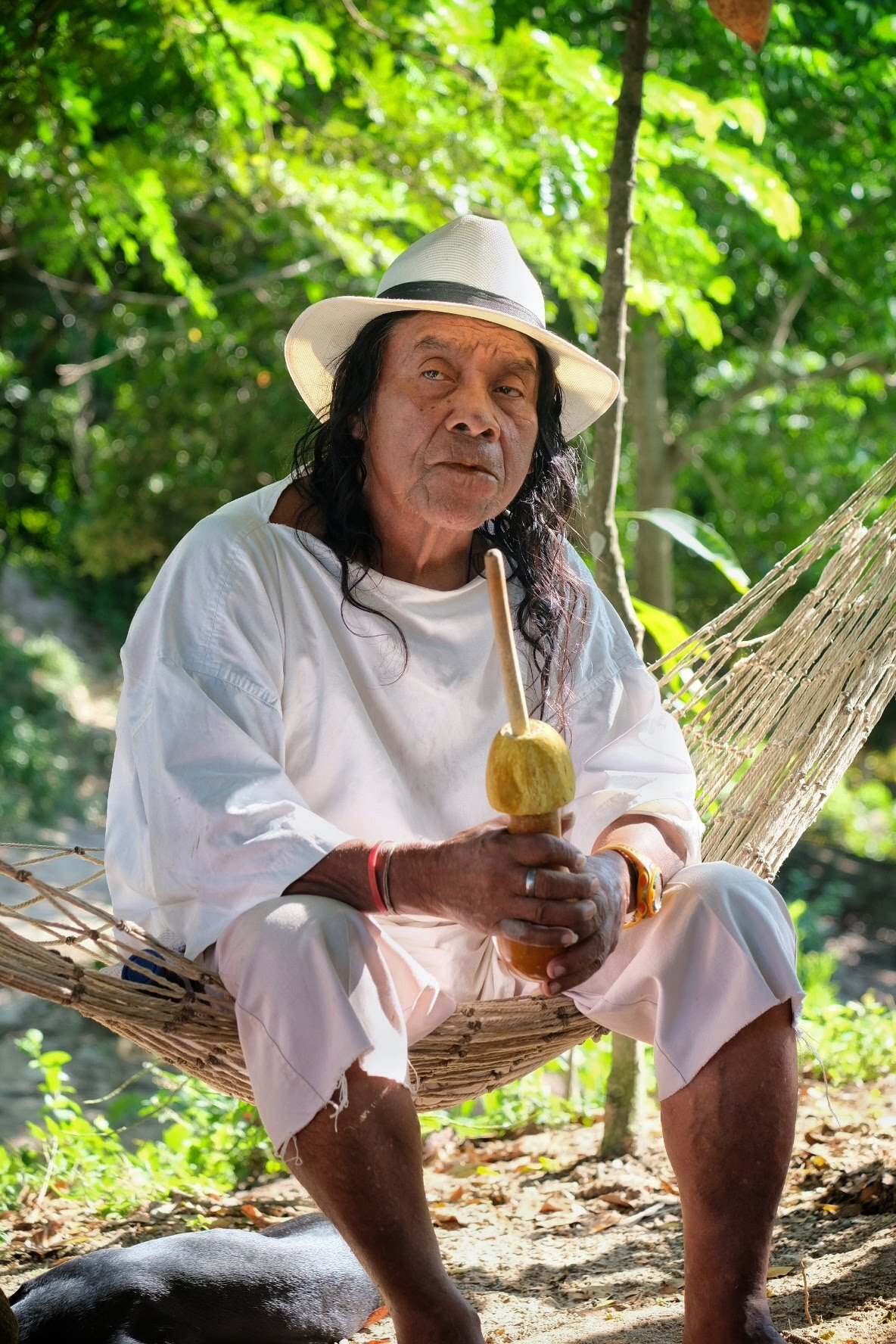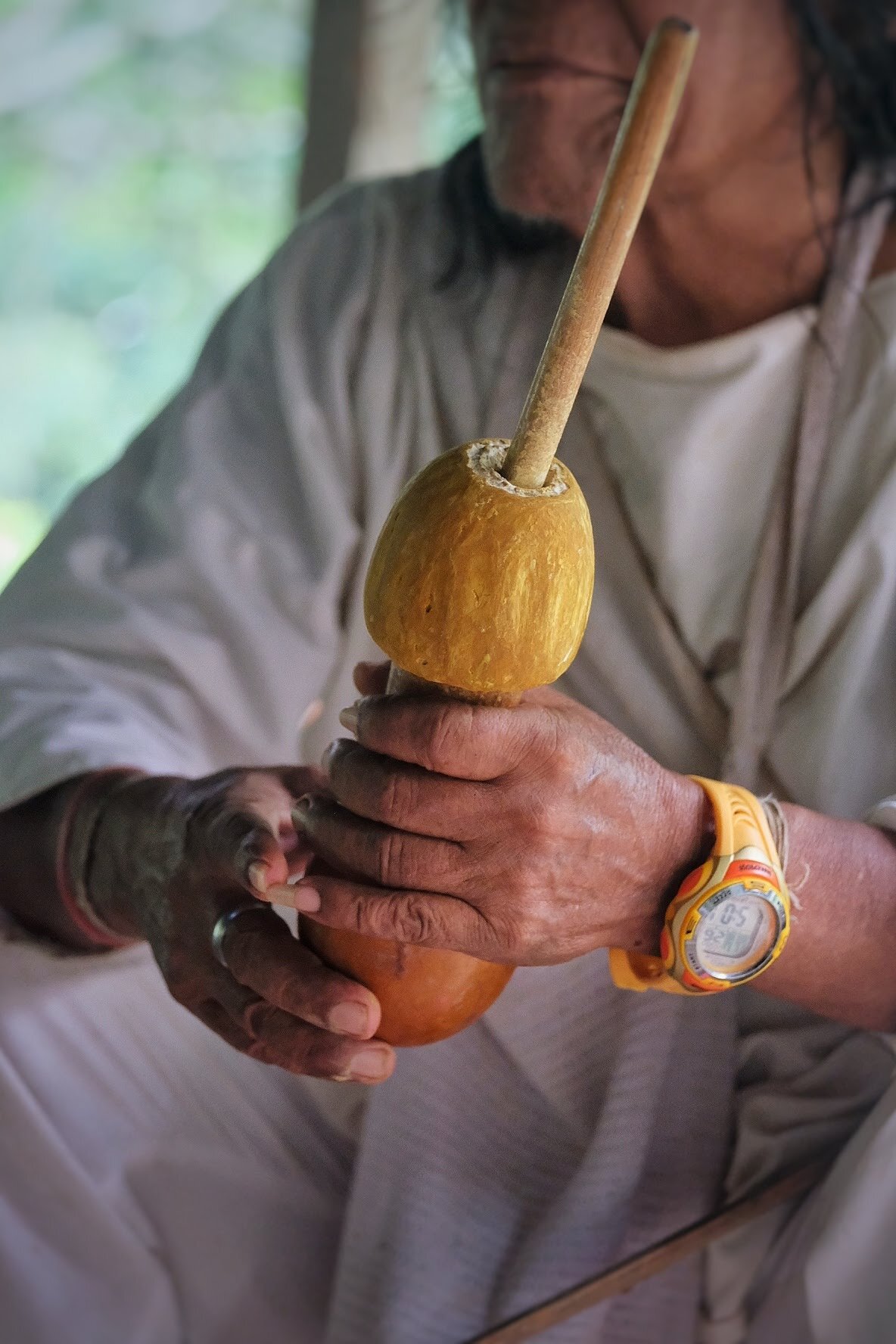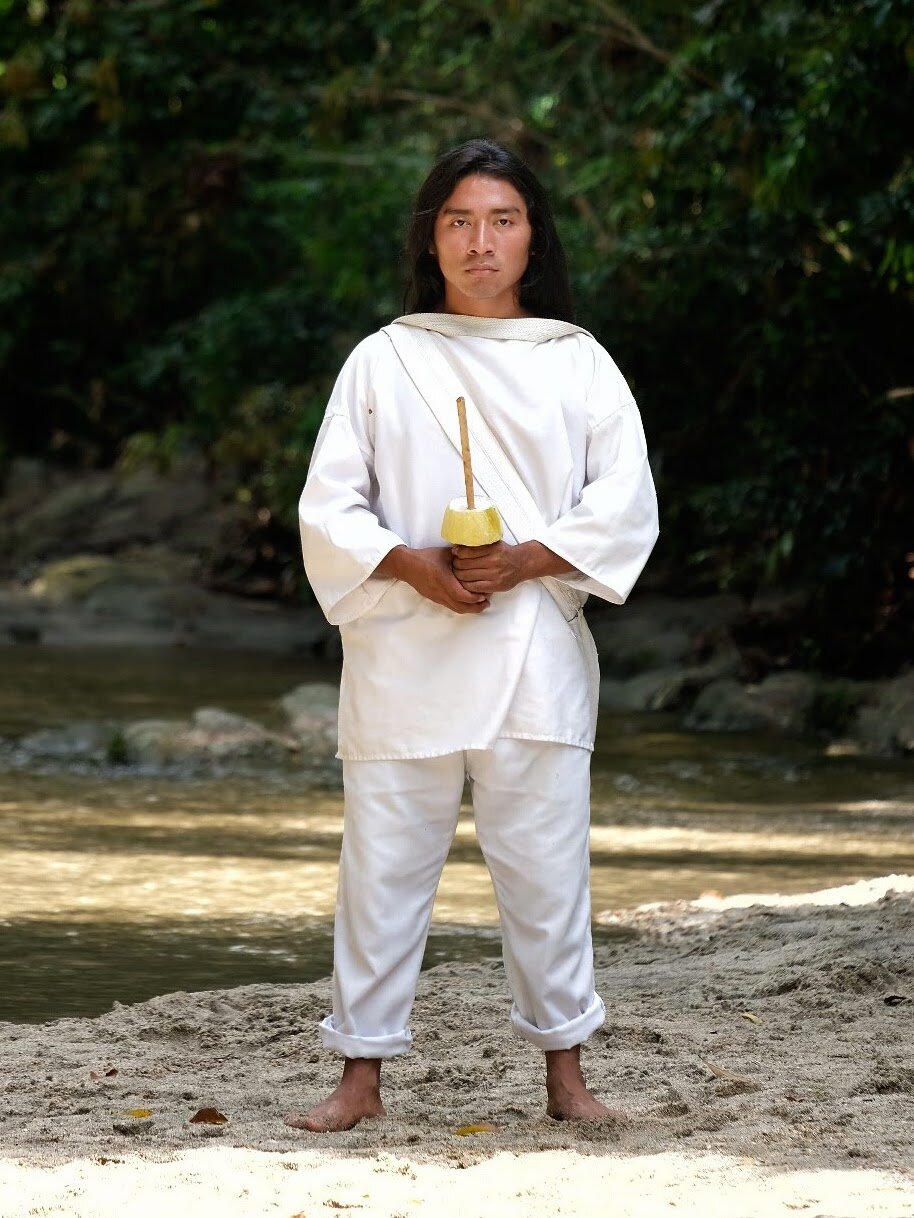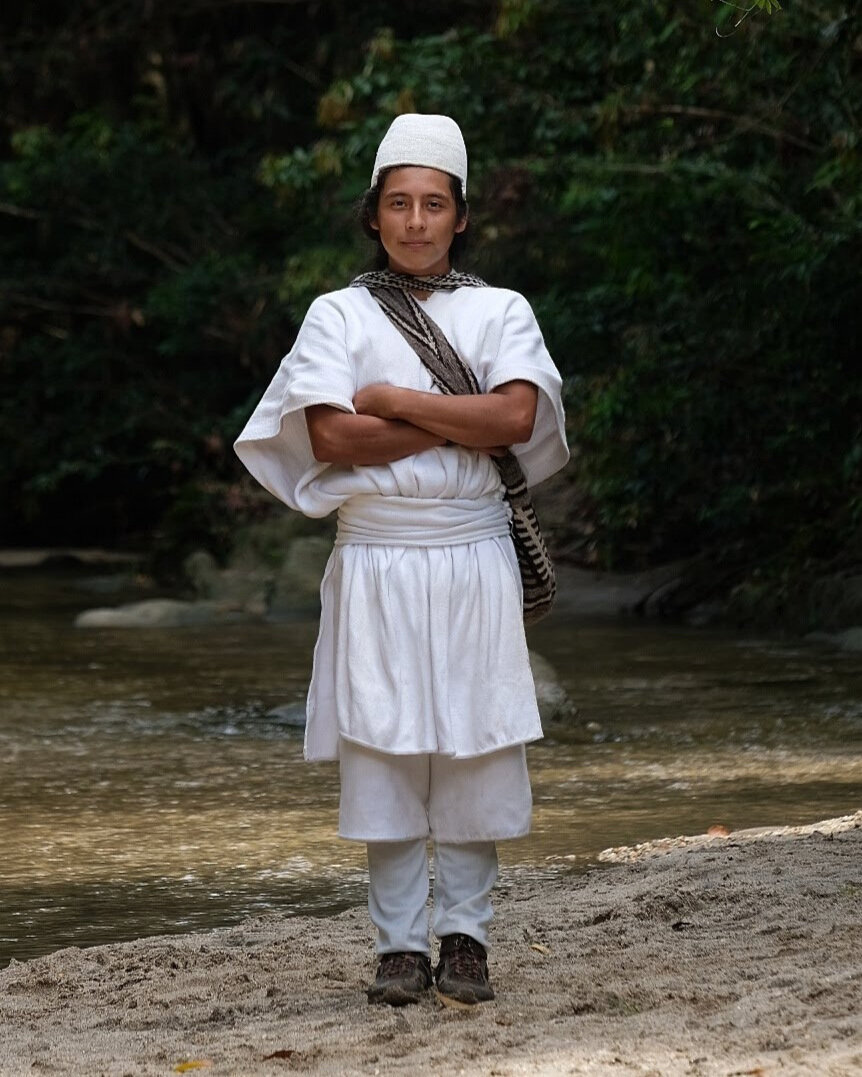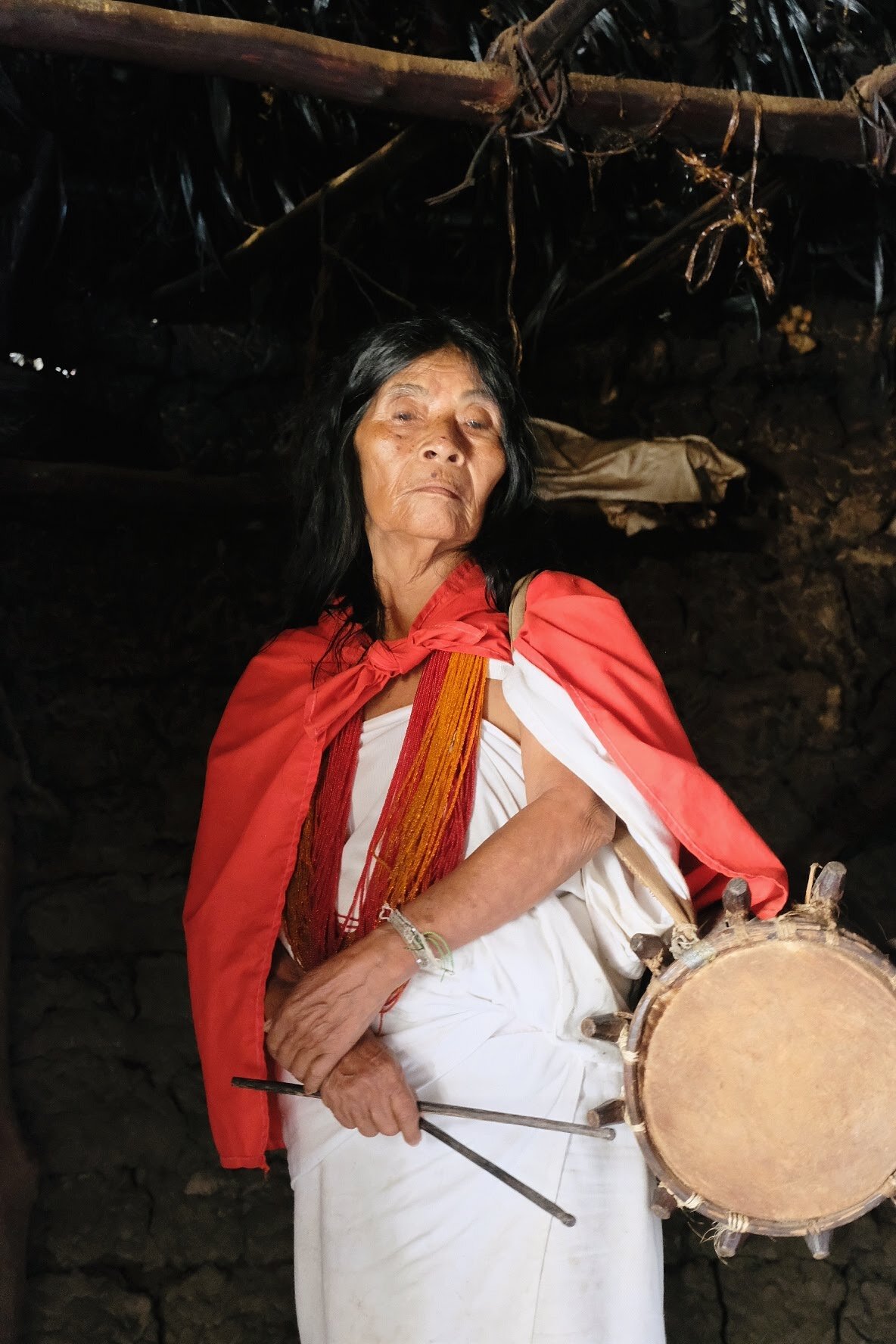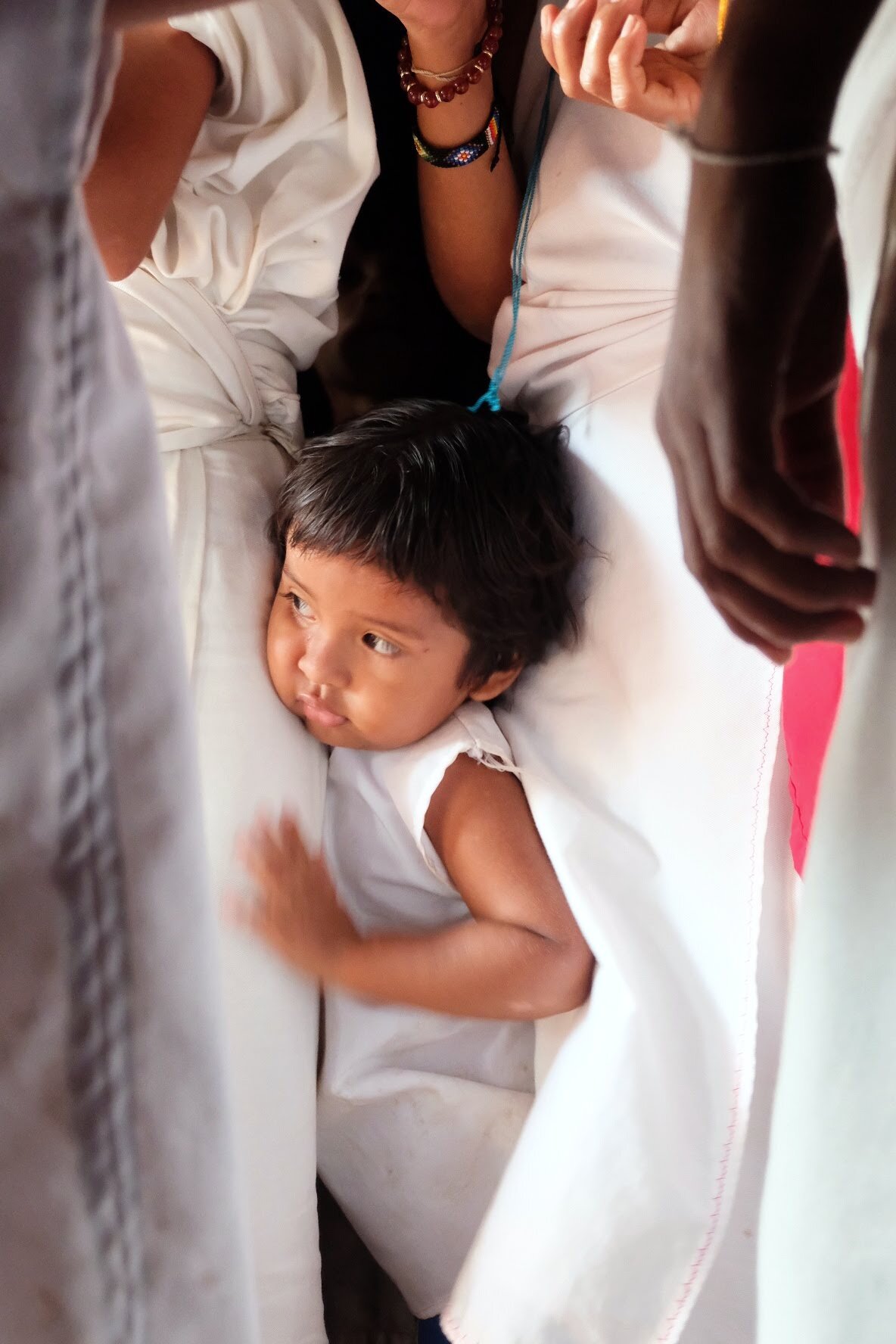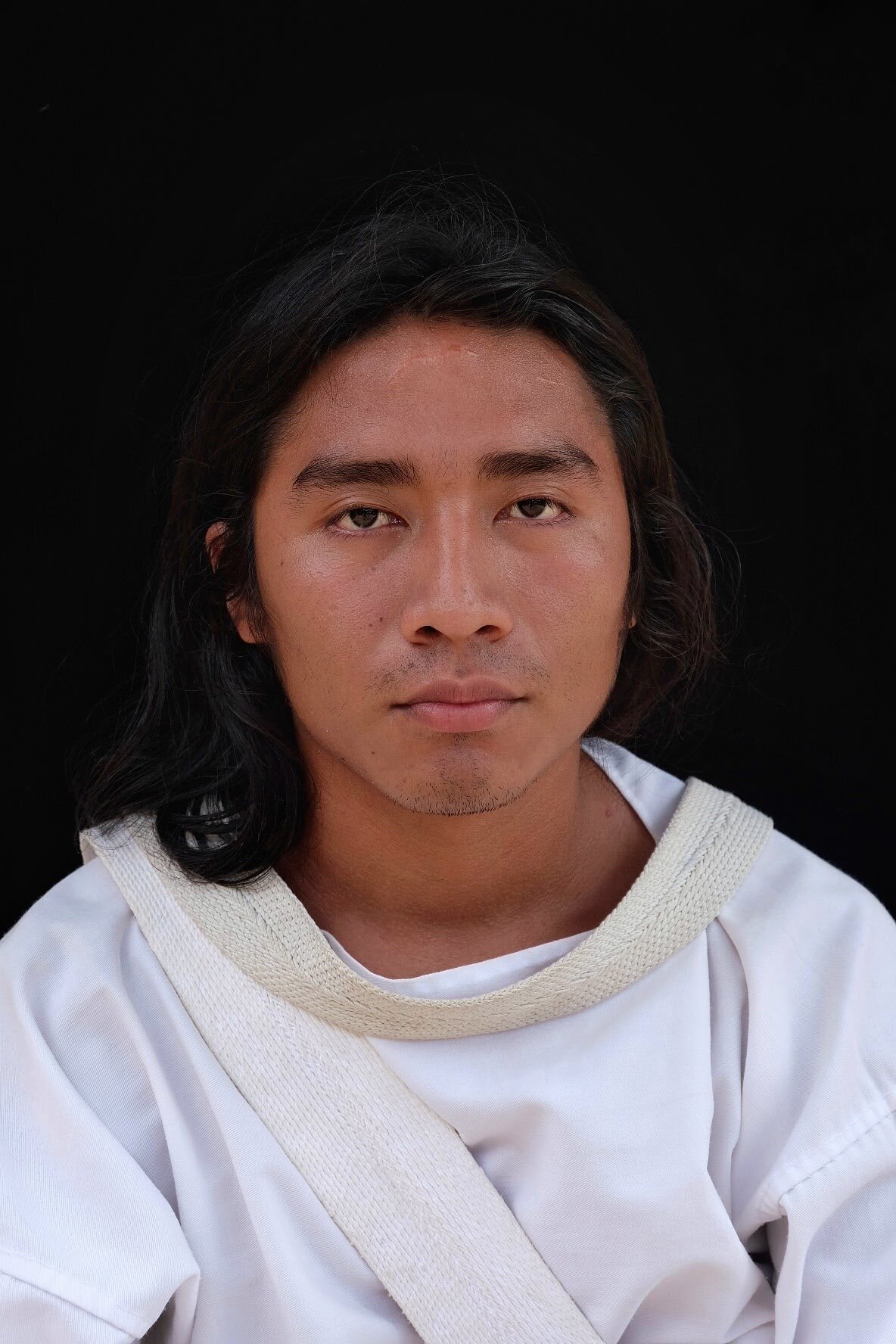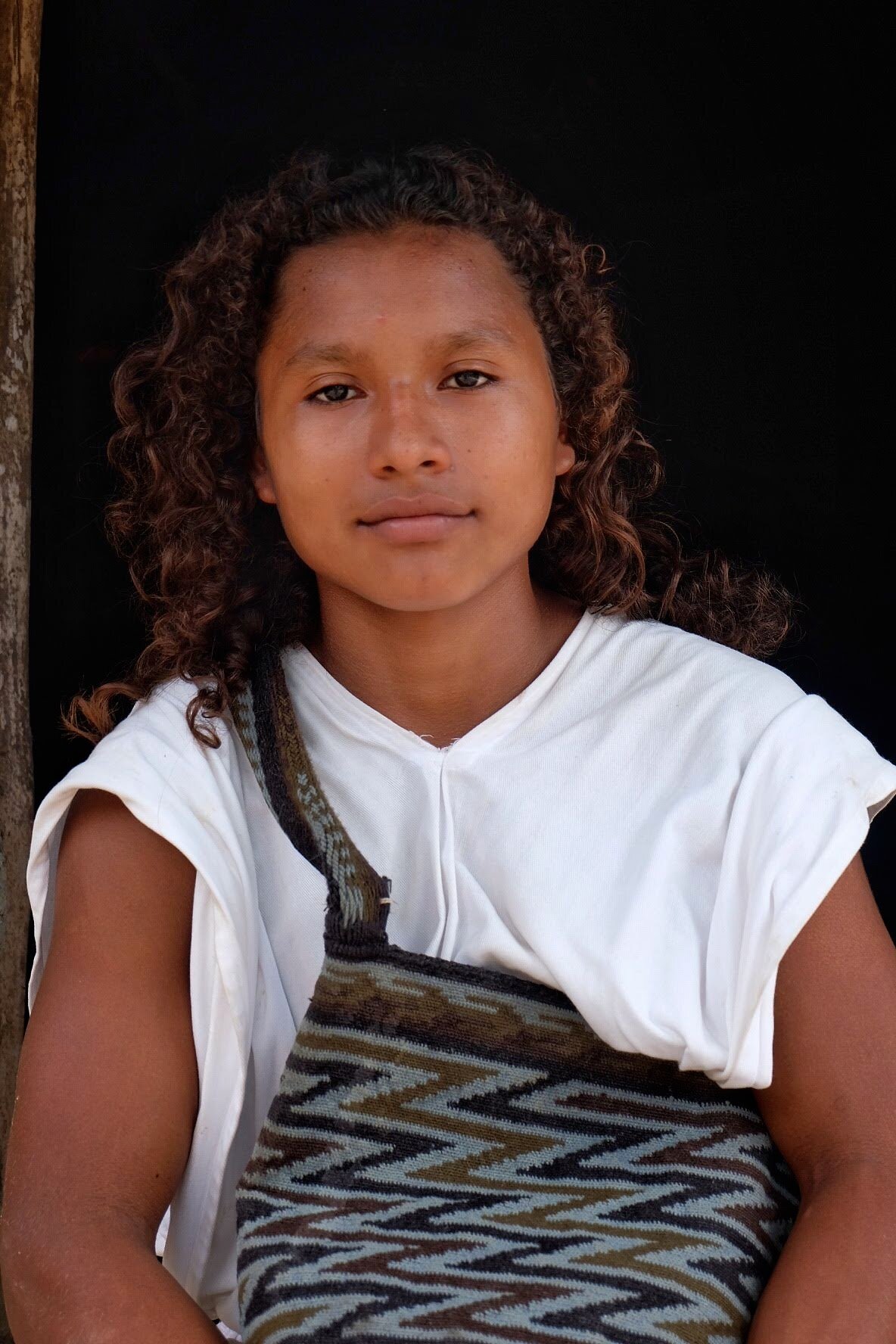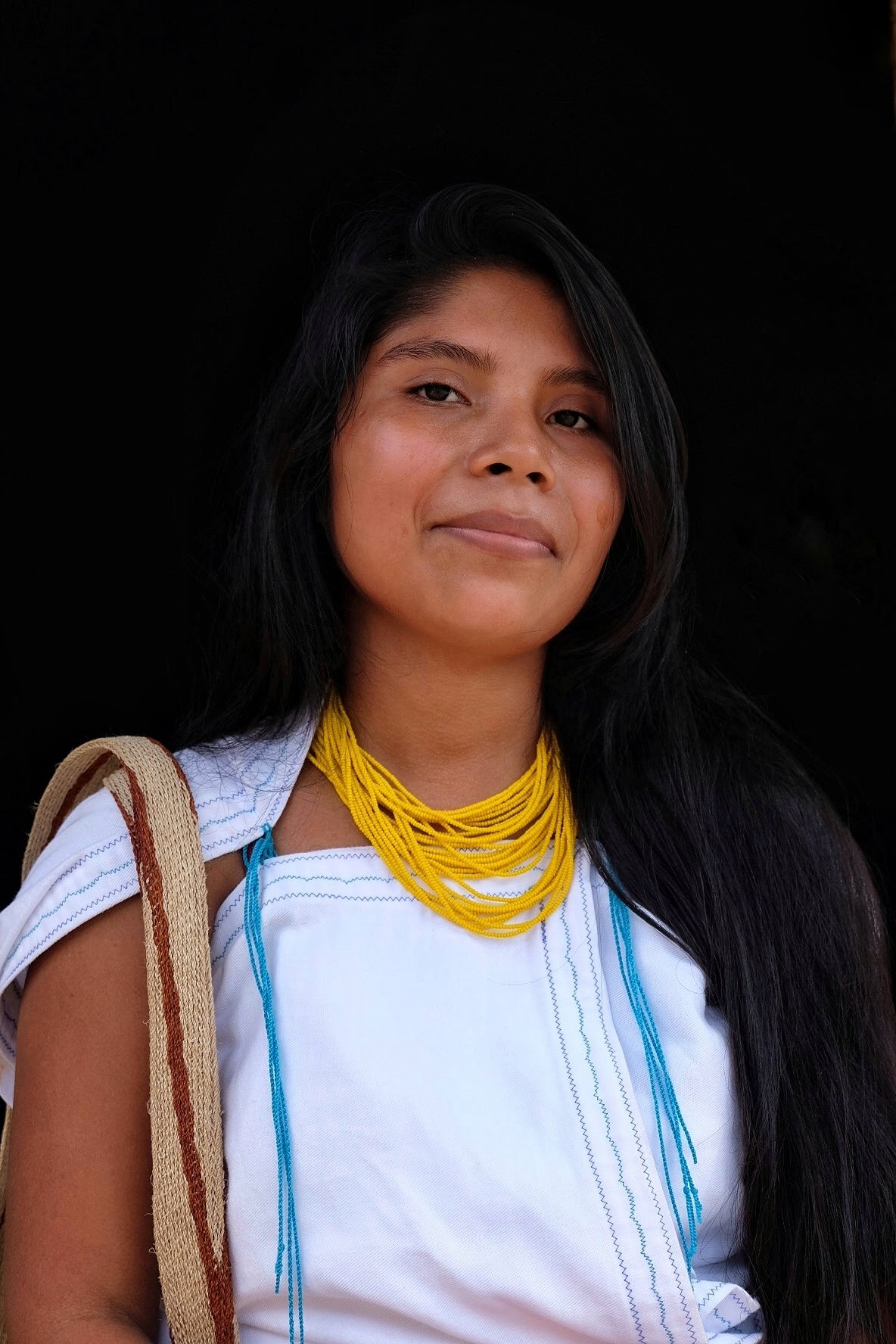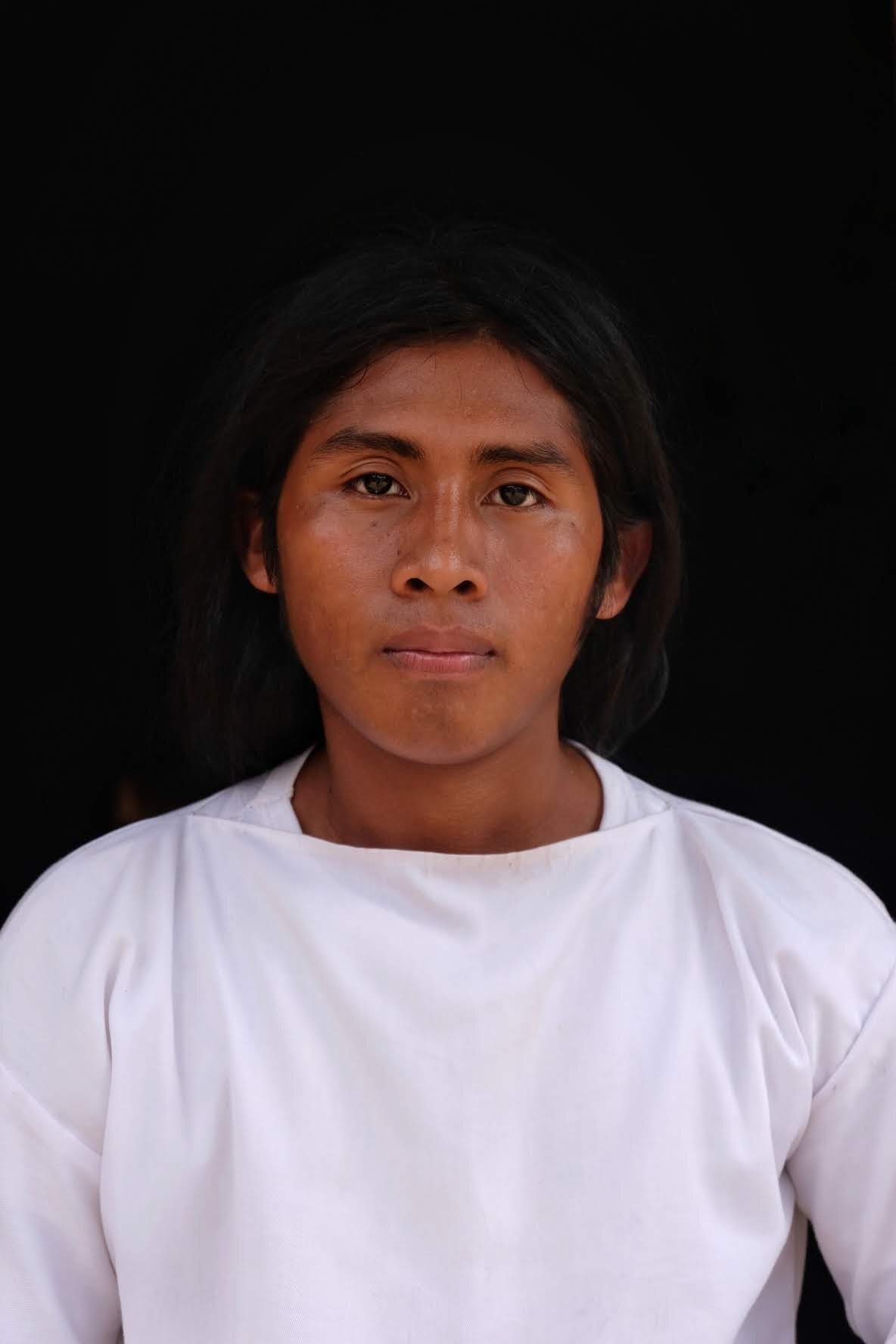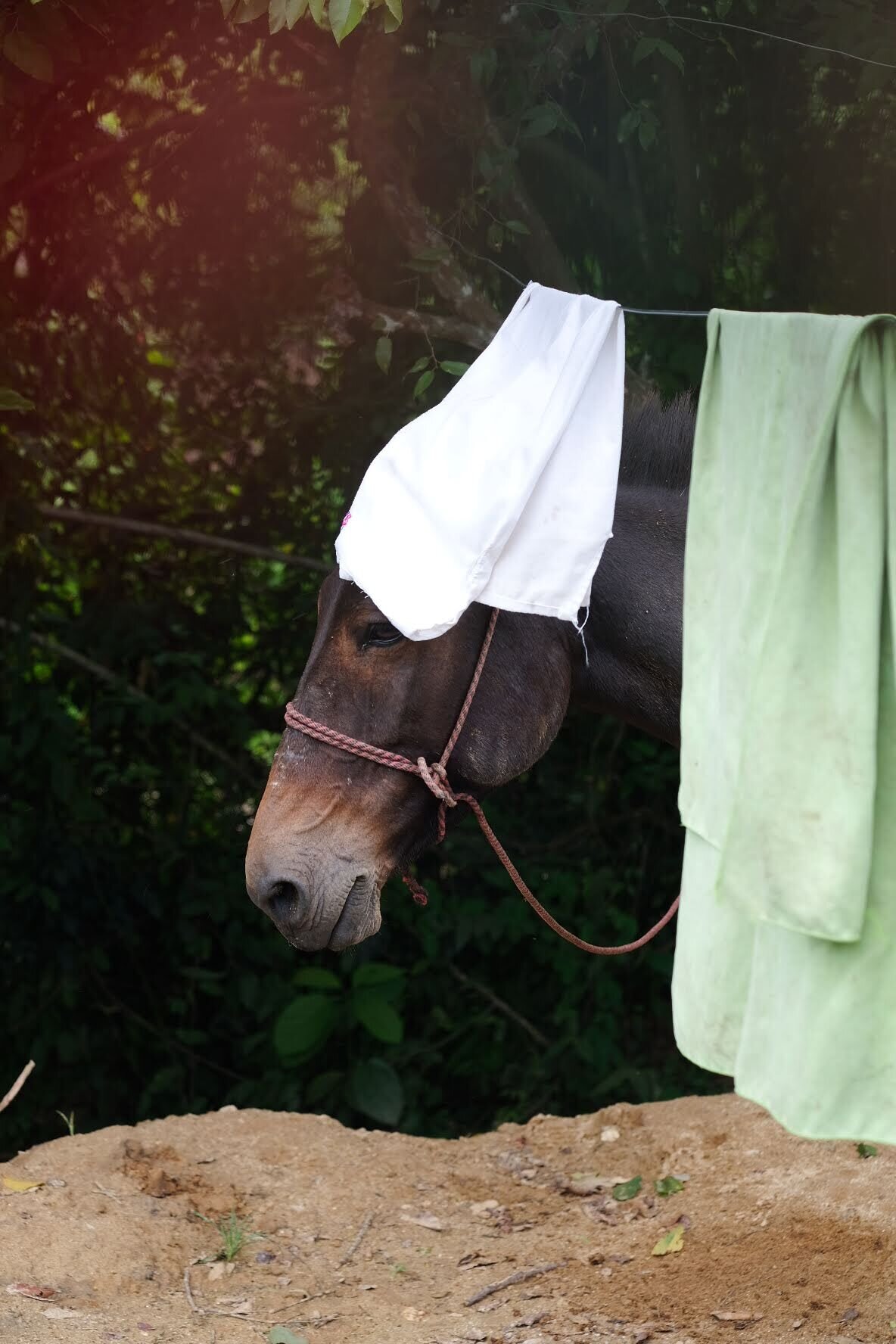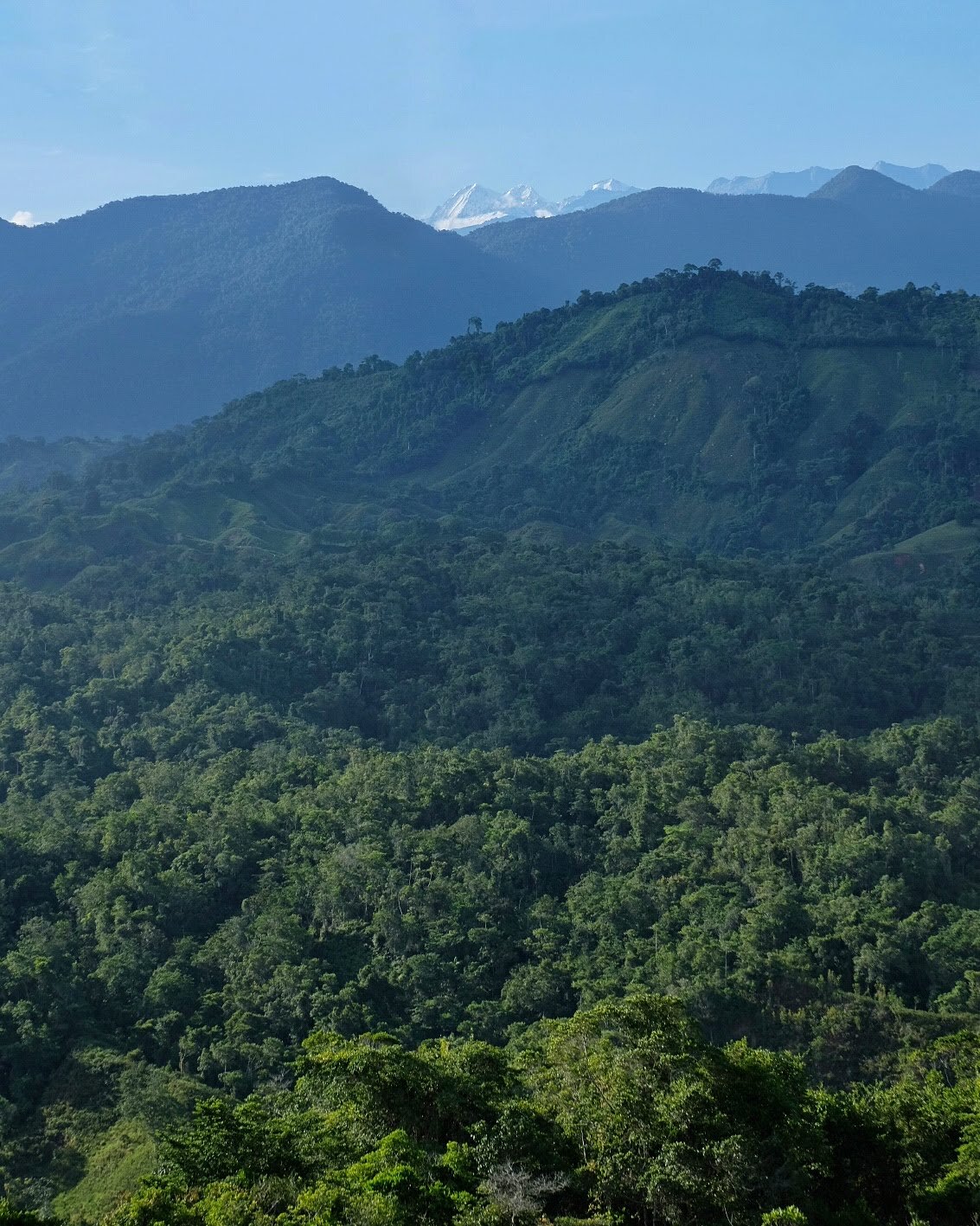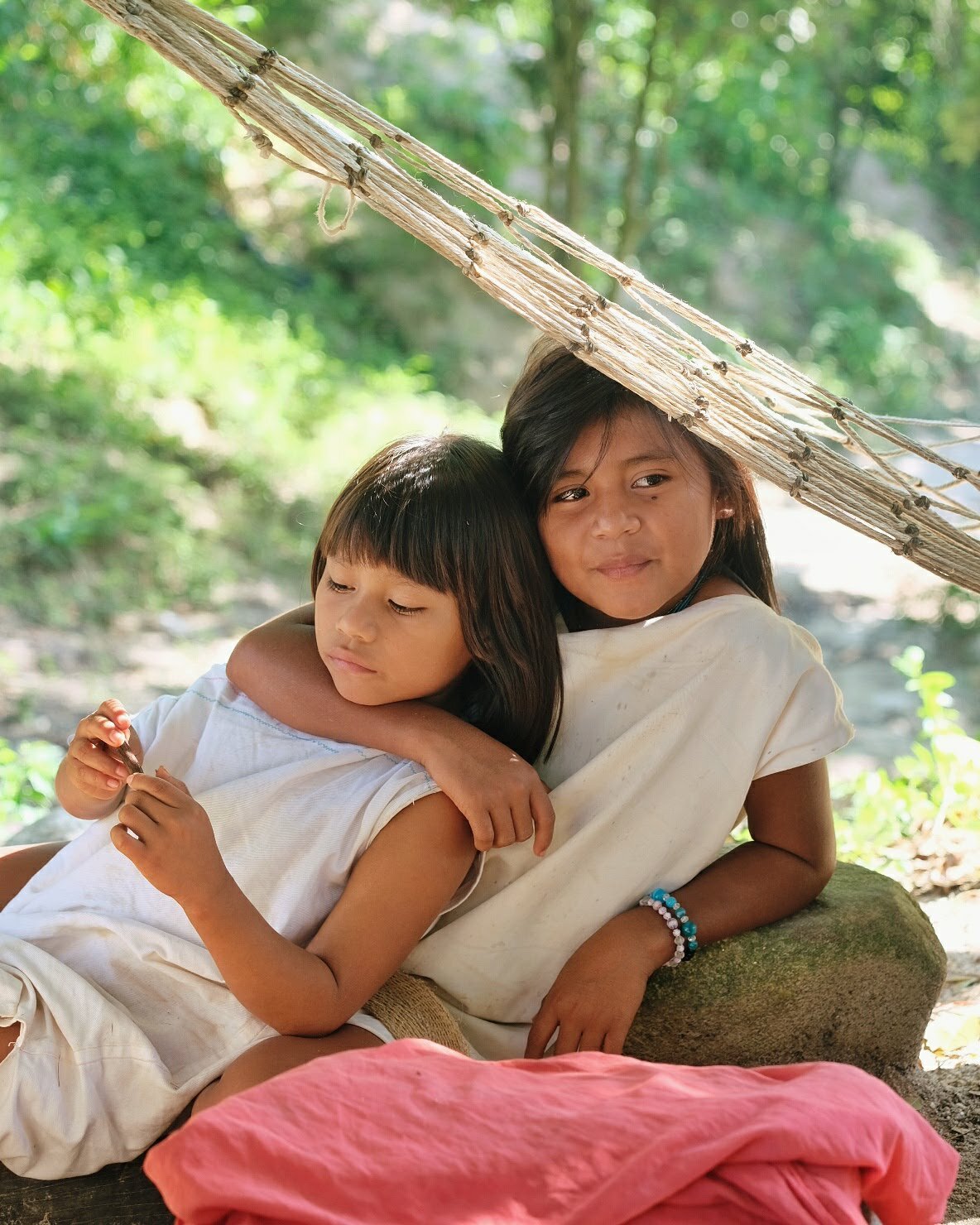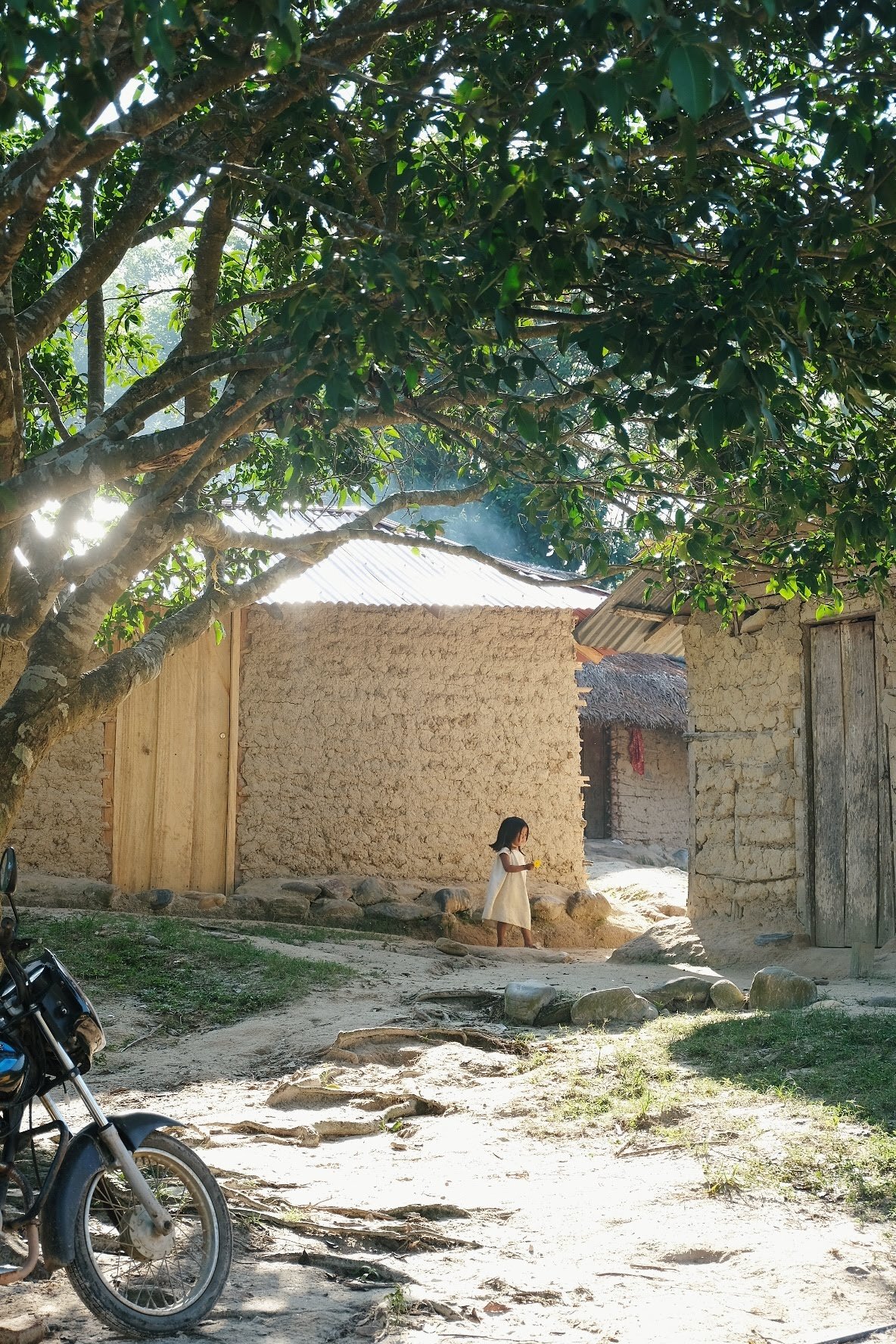The Wiwa and indigenous women’s rights
for Mensen met een Missie
published in their biannual magazine
“Sit down, close your eyes and set an intention for your visit here the coming days". No, we are not at some yoga retreat, but visiting a Wiwa community in Colombia's mountain range the Sierra Nevada de Santa Marta.
Ramon (81), the spiritual leader or mamo of this indigenous group welcomes us on the edge of the village. His outfit is white, just like everyone else's here, except for striking pink crocs and an orange watch. "Intention is everything," he says.
Ramon - and all the men surrounding him - chews coca leaves, and dips a wooden stick with saliva into a hollowed-out gourd filled with crushed seashells, a poporo. Then, he repeatedly swirls and wipes the stick around the gourd, slowly building up its size over time. Every swirl is a thought, and whole stories are written on the poporo. It's a meditative practice that enhances their spiritual connection.
He asks us to take a moment in silence, to think about the purpose of our visit.
A few days before this, we attended a workshop with Federico Rios on how to not only take something with photojournalism, but, if all goes well, to give something back too. I focus my mind on that. May it be a mutually beneficial visit.
Three minutes pass, we open our eyes and we can continue.
The Wiwa are one of the four indigenous groups that live in the Sierra Nevada. Together with the Arhuaco, Kogi and Kankuamo, they are the guardians of what they call "the heart of the Earth". The Wiwa have the special task of acting as a link between the indigenous world and everything outside it. They refer to themselves as the "Older Brothers" of the world and thus have a special responsibility to keep everything in balance.
It is also a heartfelt way to say to us, the outside world, the Little Brother: "hey, hear us out - something is wrong here". Through their wonderful cosmovision, in which everything in nature is assigned a spirit and is connected to each other, they have been aware for decades that humans and mother Earth no longer live in harmony. That natural areas, their homes, are threatened by climate change, land grabbing for mining and roads, and armed conflict. Are we listening?
Animals are all around the Wiwa village. We are woken up by the roosters crowing at dawn or one of the dogs jumping in our hammock. You can walk into a pig and oversized turkey on your way to take a bath in the river or see a cat just lazing around.
While there is a respectful relationship, most animals here have a function; as food, as companionship, or in the case of horses and mules, as a means of transport. Motorized vehicles are uncommon (and unpractical) up in the mountains, so these trusty steeds fill the gap.
Lejandrina Pastor Gil (43), is a proud Wiwa woman, social leader and head of the Woman and Family Committee of the National Organization for Indigenous People (ONIC) - supported by Mensen met een Missie.
Lejandrina tells us that within her community, gender equality is still a long way off.
On the surface, you can notice the traditional gender roles, but it goes deeper than that. Women remain dependent because they are unfamiliar with their rights, economic processes and the Spanish language. They're also often excluded from information exchange or decision making.
She says she cannot count on the support of men in the community to stand up for women's rights. Nor can she can build on the support of non-indigenous women in the cities. If indigena women want change, they have to do it themselves.
And they do!
A few times a year, Lejandrina meets with female indigena representatives from all over the country. They jointly draw up plans to access the government budget for indigenous people. Issues such as education, contraception, pregnancy and childcare are central topics.
You can tell Lejandrina is used to speaking in public; that she is not afraid to say what is needed. Yes, gender equality is still a long way off. Yes, there is a lot of work to be done. But with women like Lejandrina to lead the way in this process, I'm sure we will get there!

